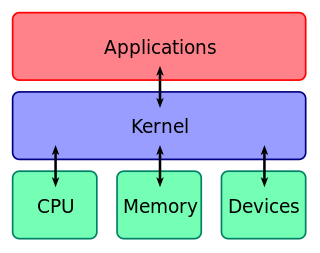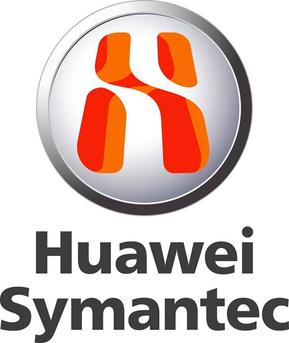Symantec may refer to:
- Gen Digital, an American consumer software company formerly known as Symantec
- Symantec Security, a brand of enterprise security software purchased by Broadcom from Symantec in August 2019
Symantec may refer to:

Antivirus software, also known as anti-malware, is a computer program used to prevent, detect, and remove malware.

Gen Digital Inc. is a multinational software company co-headquartered in Tempe, Arizona and Prague, Czech Republic. The company provides cybersecurity software and services. Gen is a Fortune 500 company and a member of the S&P 500 stock-market index. The company also has development centers in Pune, Chennai and Bangalore. Its portfolio includes Norton, Avast, LifeLock, Avira, AVG, ReputationDefender, and CCleaner.
Norton AntiVirus is an anti-virus or anti-malware software product founded by Peter Norton, developed and distributed by Symantec since 1990 as part of its Norton family of computer security products. It uses signatures and heuristics to identify viruses. Other features included in it are e-mail spam filtering and phishing protection.
Peter Norton Computing, Inc., was a software company founded by Peter Norton. The first and best known software package it produced was Norton Utilities. Another successful software package was Norton Commander, especially the DOS version. The company in this form lasted from its founding in 1982 until 1990, when it was acquired by Symantec.
Norton Internet Security, developed by Symantec Corporation, is a discontinued computer program that provides malware protection and removal during a subscription period. It uses signatures and heuristics to identify viruses. Other features include a personal firewall, email spam filtering, and phishing protection. With the release of the 2015 line in summer 2014, Symantec officially retired Norton Internet Security after 14 years as the chief Norton product. It was superseded by Norton Security, a rechristened adaptation of the original Norton 360 security suite. The suite was once again rebranded to Norton 360 in 2019.
Comodo Security Solutions, Inc., is a cybersecurity company headquartered in Bloomfield, New Jersey. Under the brand Sectigo, the company acts as a web Certificate authority (CA) and issues SSL/TLS certificates.
Rogue security software is a form of malicious software and internet fraud that misleads users into believing there is a virus on their computer and aims to convince them to pay for a fake malware removal tool that actually installs malware on their computer. It is a form of scareware that manipulates users through fear, and a form of ransomware. Rogue security software has been a serious security threat in desktop computing since 2008. An early example that gained infamy was SpySheriff and its clones, such as Nava Shield.

Broadcom Inc. is an American multinational designer, developer, manufacturer, and global supplier of a wide range of semiconductor and infrastructure software products. Broadcom's product offerings serve the data center, networking, software, broadband, wireless, storage, and industrial markets. As of 2023, some 79 percent of Broadcom's revenue came from its semiconductor-based products and 21 percent from its infrastructure software products and services.

Kernel Patch Protection (KPP), informally known as PatchGuard, is a feature of 64-bit (x64) editions of Microsoft Windows that prevents patching the kernel. It was first introduced in 2005 with the x64 editions of Windows Vista and Windows Server 2003 Service Pack 1.

PC Tools was a software company founded in 2003 and acquired by Symantec in 2008; the new owner eventually discontinued the PC Tools name. Company headquarters were in Australia, with offices in Luxembourg, the United States, United Kingdom, Ireland, and Ukraine. The company had previously developed and distributed security and optimization software for the Mac OS X and Microsoft Windows platforms.
pcAnywhere is a discontinued suite of computer programs by Symantec which allows a user of the pcAnywhere remote program on a computer to connect to a personal computer running the pcAnywhere host if both are connected to interconnected networks and the password is known. pcAnywhere runs on several platforms, including Microsoft Windows, Linux, Mac OS X, and Pocket PC.
SONAR is the abbreviation for Symantec Online Network for Advanced Response. Unlike virus signatures, SONAR examines the behavior of applications to decide whether they are malicious. SONAR is built upon technology Symantec acquired in its late 2005 purchase of WholeSecurity, a developer of behavioral anti-malware and anti-phishing software in the United States.

Symantec Endpoint Protection, developed by Broadcom Inc., is a security software suite that consists of anti-malware, intrusion prevention and firewall features for server and desktop computers.
Brightmail Inc. was a San Francisco–based technology company focused on anti-spam filtering. Brightmail's system has a three-pronged approach to stopping spam, the Probe Network is a massive number of e-mail addresses established for the sole purpose of receiving spam. The Brightmail Logistics and Operations Center (BLOC) evaluates newly detected spam and issues rules for ISPs. The third approach is the Spam Wall, a filtering engine that identifies and screens out spam based on the updates from the BLOC.
Man-in-the-browser, a form of Internet threat related to man-in-the-middle (MITM), is a proxy Trojan horse that infects a web browser by taking advantage of vulnerabilities in browser security to modify web pages, modify transaction content or insert additional transactions, all in a covert fashion invisible to both the user and host web application. A MitB attack will be successful irrespective of whether security mechanisms such as SSL/PKI and/or two- or three-factor authentication solutions are in place. A MitB attack may be countered by using out-of-band transaction verification, although SMS verification can be defeated by man-in-the-mobile (MitMo) malware infection on the mobile phone. Trojans may be detected and removed by antivirus software, but a 2011 report concluded that additional measures on top of antivirus software were needed.

Huawei Symantec Technologies Co., Ltd. was a developer, producer and supplier of network security, storage and computing solutions

Norton LiveUpdate is a utility developed by Symantec Corporation that downloads and installs security updates and software patches. LiveUpdate can only apply updates for a particular version of Norton; it cannot however upgrade a version of Norton to a later version. To upgrade the product to the latest version, one would have to go to a separate website.
Norton is a brand name used by the American company Gen Digital for some of its software.
Veritas Technologies LLC is an American international data management company headquartered in Santa Clara, California. The company has its origins in Tolerant Systems, founded in 1983 and later renamed Veritas Software. It specializes in storage management software including the first commercial journaling file system, VxFS, VxVM, VCS, the personal/small office backup software Backup Exec and the enterprise backup software, NetBackup. Veritas Record Now was an early CD recording software.